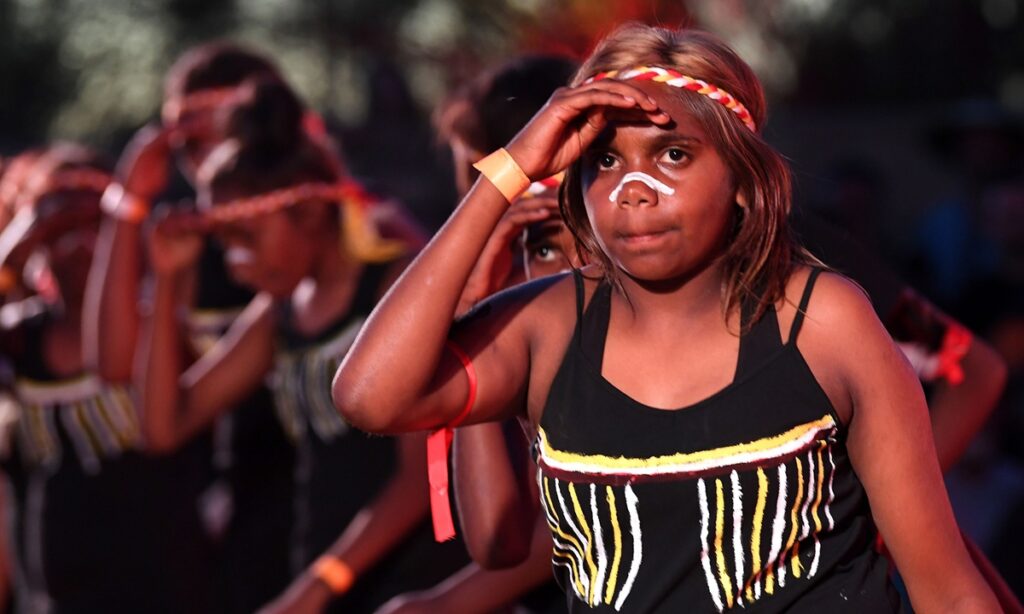As Australia prepares for its national day of festivities on Tuesday, Indigenous woman Rita Wright will be protesting the celebrations at a march in Sydney.
Australia Day marks the date the British fleet sailed into Sydney Harbour in 1788 to start a penal colony, viewing the land as unoccupied despite encountering settlements. For Wright, holding national celebrations on the highly sensitive date reinforces a legacy of mistreatment of Indigenous people. She said the date of the national holiday should be changed.
“I always thought Captain Cook owned this land and not the Aboriginal people,” said Wright, referring to the British explorer who mapped Australia’s eastern coastline in 1770, paving the way for the establishment of the colony. “But as I got older and stronger I was so proud that I’m Aboriginal.”
Snatched off the street at the age of 2 and re-homed at a church mission, Wright, of the Muruwari people from Australia’s east, is part of the Stolen Generation, a dark era in the continent’s history.
She said she was forced to sleep in a chicken coop at the mission as a child.
The push to change the date of January 26 celebrations has never been stronger, with protests growing in size every year. The January 26 debate remains highly emotive in Australia.
Indigenous Anangu perform a traditional dance during a ceremony marking the permanent ban on climbing Uluru, also known as Ayers Rock, at Uluru-Kata Tjuta National Park in Australia’s Northern Territory on October 27, 2019. Photo: VCG




